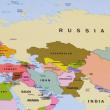News
Implications of the Ukrainian crisis

Aside from stern condemnation, the West has relatively few bargaining chips to respond to Russia's incursion into the Ukraine, which has so far been confined to the Crimea.
Aside from stern condemnation, the West has relatively few bargaining chips to respond to Russia’s incursion into the Ukraine, which has so far been confined to the Crimea. The West can of course cancel the G8 summit in Sochi in June, but strong sanctions seem unlikely, although the US will probably push for an economic response. However, as Russian gas supplies to Europe run through Ukraine, it is much more likely that the EU, prompted by Germany, will favour mediation between Moscow and Kiev.
This is already being talked of as a fact-finding mission to reduce tension, agreed between Merkel and Putin. Rather like the previous situation in Georgia, where the Russians moved into South Ossetia to ‘protect’ Russian citizens, where they still are today, it seems likely that the Russians will maintain a strong presence in the Crimea, quite apart from their Black Sea fleet at Sebastopol. The Russian equity market dropped by 9% on Monday, with investors fearing disruption to gas exports and the threat of confrontation with the West, while Russian 10 year bond yields rose 19 basis points to 4.77%. Ukrainian 10 year bonds rose 98 basis points to 10.24% Already, Russia is hinting at an increase in gas prices to the Ukraine after the first quarter, reversing a deal by which Russia had extended the lease on the Sebastopol base in return for gas supplies at 30% below market prices. As the Russians already occupy the Crimea, they seem to have the upper hand. If the crisis worsens, we may look to reduce our portfolios’ European equity weightings, which have the most exposure to increasing risks emanating from Russia.

